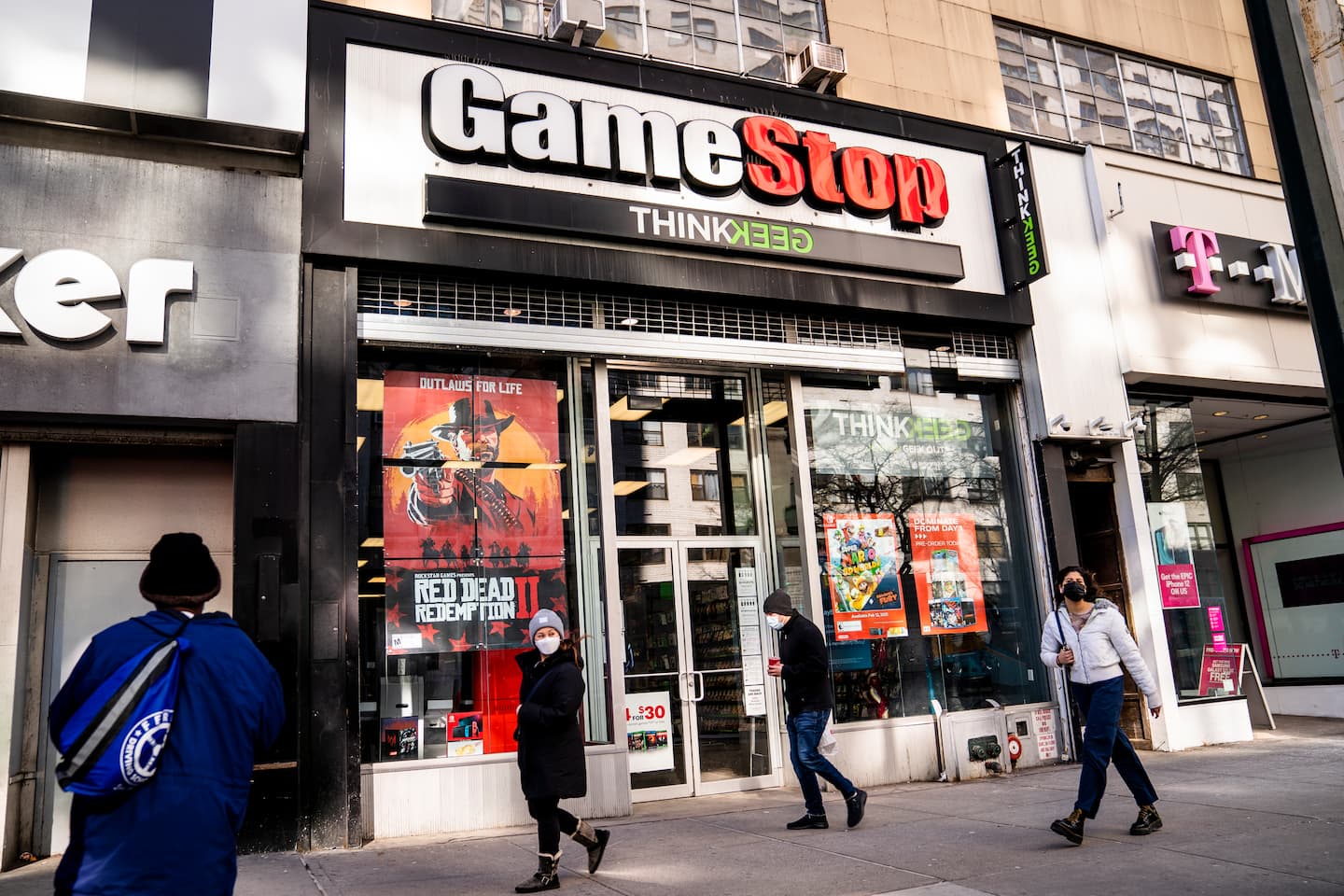Three theories GameStop witnesses hope to dispel

Here are some of the theories House hearing witnesses hope to debunk when they take the stage:
Theory 1: Robinhood caved to powerful interests
A few days into the GameStop surge, Robinhood took the surprising step of halting users’ ability to buy the stock. At the time, the company didn’t fully explain this move, leading investors on social media to decry the policy as unfair and speculate that the company had bowed to pressure from powerful Wall Street firms that were getting crushed by the rising stock.
After the trading halt, some Reddit users claimed without evidence that White House officials had pushed Robinhood to make that move. Others suggested that Citadel, the financial services giant from which Robinhood makes a large portion of its revenue, had called on Robinhood to stop trading. The theory gained currency when business executives, including Elon Musk, and politicians, including Rep. Alexandria Ocasio-Cortez (D-N.Y.), called for Robinhood to explain the events leading up to its decision.
Eventually, Robinhood did explain that the GameStop frenzy had created a liquidity crisis. The law required the online brokerage to put up billions of dollars as collateral to guarantee that its users could be paid out, and the company didn’t have enough cash, chief executive Vlad Tenev said in a blog post and in an interview with Musk on the audio broadcast app Clubhouse. The company soon raised more than $3 billion from outside investors that allowed it to meet these obligations and resume trading.
Tenev plans to explain the liquidity problem in depth during Thursday’s hearing, and call on Congress to consider changing the laws that could prevent a similar problem in the future. Citadel founder Ken Griffin will strongly deny that his firm had any role in the decision to halt trading.
Theory 2: Reddit users had ulterior motives
The anonymity of Reddit’s users has led to speculation about who was responsible for sparking the stock-buying frenzy. Although many users of the online investing forum known as r/WallStreetBets appear to be amateurs, the forum also has many users who grasp complex trading concepts, share screenshots of their Bloomberg terminals and discuss six-figure bets on single stocks. Financial regulators have said they are combing through social media posts to determine whether professional investors used online anonymity to stoke demand for stocks.
Keith Gill, a Reddit user called to testify about his online promotion of GameStop stock, was until recently a registered broker and employee of MassMutual, causing speculation about whether he was pumping the stock in the interest of his firm or clients. Debra O’Malley, a spokeswoman for the Massachusetts secretary of the commonwealth, said earlier this month that the state was examining Gill’s social media activity as it relates to his former role at MassMutual.
In his testimony, Gill plans to say that he posted to social media only as an individual investor. “The idea that I used social media to promote GameStop stock to unwitting investors is preposterous,” he wrote in his prepared remarks. “I was abundantly clear that my channel was for educational purposes only, and that my aggressive style of investing was unlikely to be suitable for most folks checking out the channel.”
Reddit chief executive Steve Huffman also plans to detail steps the site has taken to vet the community for unscrupulous actors.
“We have since analyzed the activity in WallStreetBets to determine whether bots, foreign agents, or other bad actors played a significant role,” Huffman wrote in his prepared remarks. “They have not. In every metric that we checked, the activity in WallStreetBets was well within normal parameters, and its moderation tools were working as expected.”
Theory 3: Robinhood sells user data to hedge funds
The events of the past month drew attention to Robinhood’s business model. The company charges large investment firms called “market makers” fees to access real-time information about which stocks its users are buying and selling — a business called “payment for order flow.”
Some have speculated, without evidence, that Robinhood sells this same data to investment firms that use it to “front run” trades, or buy and sell stocks moments before Robinhood’s users themselves buy or sell the same stocks. Front-running is illegal, and Robinhood denies that it provides data to hedge funds for this purpose.
Still, members of Congress have said they want to know more about Robinhood’s relationship with Citadel Securities, a market-making company that shares an owner and a name with a large hedge fund, Citadel. As a market maker, Citadel Securities is the largest buyer of Robinhood trading data, information it says it uses to improve its trading algorithms and to take a small profit on the “spread,” or difference in price between what a Robinhood user pays and the price at which the security is being sold in the market. Citadel Securities says it does not share this data in any way with its affiliated investment firm, Citadel.
In his prepared remarks, Tenev plans to say that Robinhood’s “payment for order flow relationships are with market-makers and not with hedge funds.”






